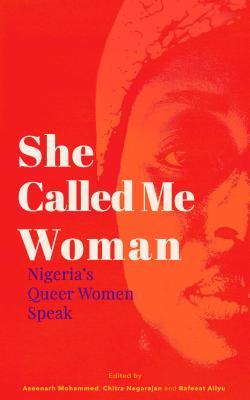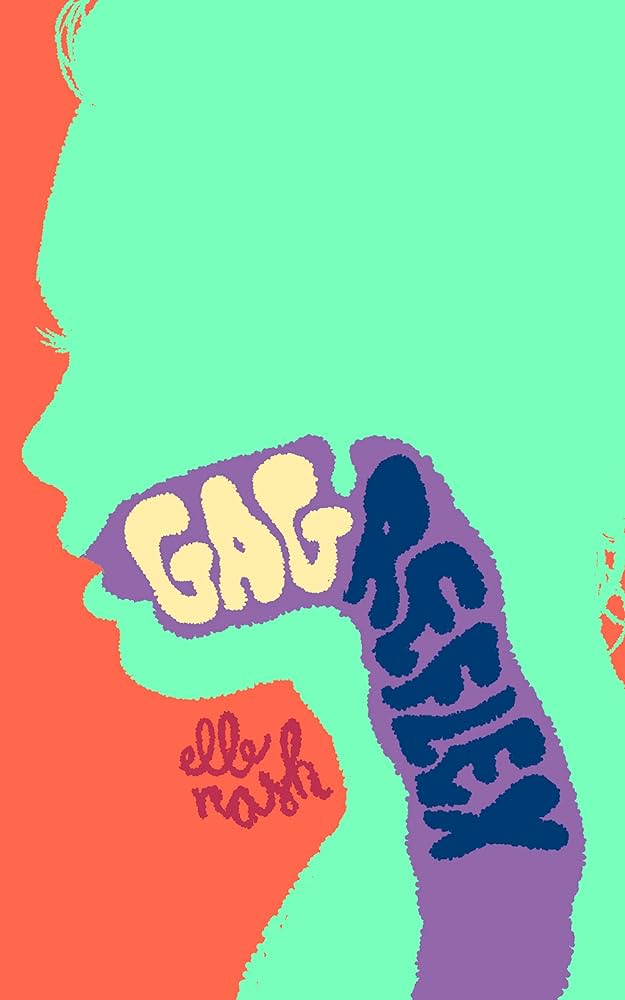
I received a bisexual poetry collection for Christmas/Dedek Mraz this year which opens with “A Note on Content”, a half page long warning that
“This book contains depictions of self-harm, suicidal thoughts and, in one case, homophobic violence. Readers who have struggled or are currently struggling with these issues may not wish to read this book alone, or without a trusted friend.”
Readers are then also given some helplines they can contact.
One of the top reviews on Goodreads is by an older man, who was so irritated by the trigger warning in the book, he seems to have almost forgotten to review the book itself.

This made me roll my eyes - I know the kind of people who rail against trigger warnings, and their politics are usually the exact opposite of mine. But I’ve read a couple of books with trigger warnings now with varying degrees of effectiveness.
The most prominent trigger warnings I’ve come across are in She Called Me Woman, a collection of essays about the experiences of queer Nigerians. Each essay comes with individual warnings - physical violence, attempted suicide, corrective rape, self harm, child sexual abuse, racism etc.

When I was reading it for the first time, I actually avoided the essays with the heaviest and most numerous warnings and read them last. I consequently experienced the entire collection out of order, in direct defiance of the curated experience the editors planned for me, only to find out that what was hiding behind most of the warnings wasn’t the long, gruesome paragraphs with detailed descriptions of violence that I expected, but brief mentions at best. I ultimately found the warnings more upsetting than the content they warned me about (and even now going back through them to list in this post I find myself tensing up, even though I’ve already read and enjoyed the whole book).
I also found that the warnings were not what made the upsetting content easier to digest,but rather it was the tone of the essays, their humanity, and the real life resolution of the narrators. The trigger warnings made me feel I was about to read stories of misery and helplessness, when in reality the whole book is a testament to resilience, hope, recovery, community, and sometimes even revenge.
Apparently my experience is not unique - Psychology Today gives an overview on research which has shown that trigger warnings cause “anticipatory anxiety” which may actually lead to increased distress. Studies also seem to show that trigger warnings fail to do what they’re designed to - they don’t deter people from engaging with upsetting content and they don’t help trauma survivors emotionally.
I have complex feelings about this. There was a time when I utilised trigger warnings to curate my social media feeds to make sure I wouldn’t stumble upon content that would disrupt my entire day while browsing pretty pictures and cat memes - and it worked. However, I used browser add-ons to remove posts containing certain keywords entirely - I wasn’t warned that that a post contains upsetting material and then given a choice to view it or not, I never even knew it was there. I never had to see the trigger warnings so I wasn’t faced with anticipatory anxiety or “the forbidden fruit effect” (which may be what’s causing trigger warnings to backfire).
I’m also at the moment writing a book review for this website about Gag Reflex, a book which centres around eating disorders and which includes whole pages of calorie counting. I’m considering opening that review with a content note because I think it warrants it - spending hours reading an entire book’s worth of detailed descriptions of disordered eating is different from a short mention. The author of the book herself said staying away from eating disorder memoirs was a part of her recovery.
Clearly, there are instances when warnings can work and avoiding a certain type of content is beneficial. But at other times we’re left with major anticipatory anxiety due to a content warning for “attempted suicide” only to find that the essay isn’t about suicide, but merely contains the line, “I attempted suicide” with no further details on the subject (an actual example from She Called Me Woman). When the content warnings are more upsetting than the content they’re warning about, we’ve perhaps missed the mark.
Interestingly, Gag Reflex doesn’t come with a trigger warning, possibly because even a cursory glance at the back of the book makes it clear it deals with eating disorders.

The Psychology Today article actually asks whether there is a difference between a simple information label and a warning that implies readers may be harmed by what’s to follow (like in the above mentioned poetry collection). Is reading “Lucy [...] with a cradle of online friends who are definitely not pro-anorexic” on the back of a book less distressing than being faced with a solemn “Trigger warning: eating disorders” while they both communicate similar information? Is opening my review of Gag Reflex with a warning redundant when the review itself immediately mentions the protagonist has an eating disorder? Are trigger workings in books and book reviews redundant because a prominent topic will come up in a description of the book anyway?
I’ve used content warnings on this website before, but I didn’t really have a system for it, I just played it by ear. That seems to have resulted in only a couple of warnings, both for child sexual abuse - one of them actually for a single sentence in Crimson. Knowing what I know now about anticipatory anxiety, I’ll be removing that one. Since the other one refers to not just a mention, but a whole scene and a theme in the book which is not mentioned in the review, I’ll be leaving it up.
In general, I don’t want to swear off content notes completely on this website, but based on my new understanding of them, I’ll only use them in exceptional cases. I’ll also start calling them “content notes” instead of “content warnings” so as to avoid implying harm.
As for when it comes to books, I’ve learned that I personally prefer books without warnings. I do think trigger warnings are included in books benevolently, especially in books by marginalised authors who are anticipating marginalised readers, and I think that as research and experience help us understand them better, we’ll find different ways of engaging with sensitive topics in art with care.
